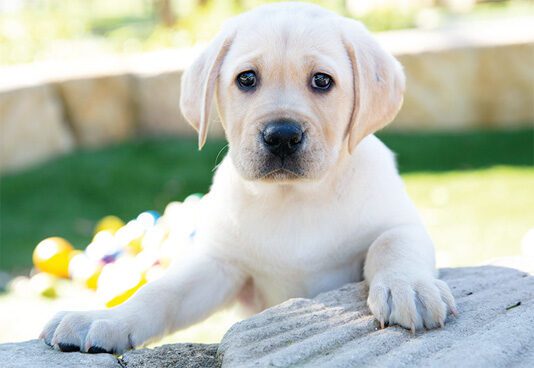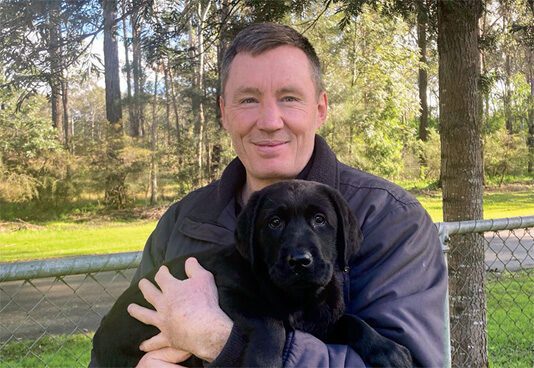Therapy dogs provide comfort to the community
There’s no doubt that labrador puppies are adorable, but when bred, raised and trained the right way, they provide a vital service to the community.
As trained therapy dogs, these lovely animals visit schools, courthouses and people living in facilities like aged care homes and workplaces to provide companionship and emotional support.
September is Therapy Dog Awareness Month, and leading the way in turning these puppies into working dogs is Guide Dogs NSW/ACT, whose head office is in St Leonards.
Eddie Sullivan, puppy development manager, looks after the breeding program at Guide Dogs’ Hawkesbury centre. He says there are about 200 dogs in the puppy-raising program and up to 50 in assessment and training.
A network of puppy-raising volunteers host puppies in their homes from eight weeks old until 14 months old, with full support and training from Guide Dogs.

“They socialise the puppy and get it out and about,” says Eddie. “So it can get used to the environment and what it will exposed to as a working guide dog. They help train the puppy, look after its basic needs, care for and love the puppy.”
Dan Cassells is a puppy development advisor. He supports puppy raisers, and runs puppy preschool classes at the office. The puppies are also socialised outdoors in Roseville Park or at the shops in Chatswood.
Dan says they currently have about 20 puppies on the North Shore and 25 on the Northern Beaches. Raising a puppy is a big commitment, albeit rewarding, and the volunteer’s home is checked.
“An apartment is fine; we’ve got plenty of dogs in apartments across the North Shore,” says Dan. “A backyard must have adequate fencing. There’s got to be some outdoor area that’s sheltered from the elements if they want to keep the dog outside a little bit of the time.
“We expect our dogs to live and sleep inside for the majority of the time. We expect the people to be home most of the time and not leave the puppy alone for more than four hours,” Dan explains. “It comes down to time commitment, as it’s a lot of work.”
But volunteers are crucial as it costs about $50,000 to breed, raise and train each dog.

Could you help Eddie Sullivan to raise puppies?
“We receive some funding through the NDIS, but about 80 per cent of our income comes from donors and supporters,” Eddie explains.
When the puppies return to the centre, they undergo a three-week assessment. If they don’t make the grade as guide dogs, there are other career options.
“About 80 per cent of our dogs find a career in either breeding, as guide dogs or therapy dogs,” says Eddie.
“Those that don’t make those programs can be offered back to the puppy raiser as a pet. If they can’t take them, we have a wait list of people looking for a pet dog from us.”
Find out about volunteering with Guide Dogs by visiting guidedogs.com.au








